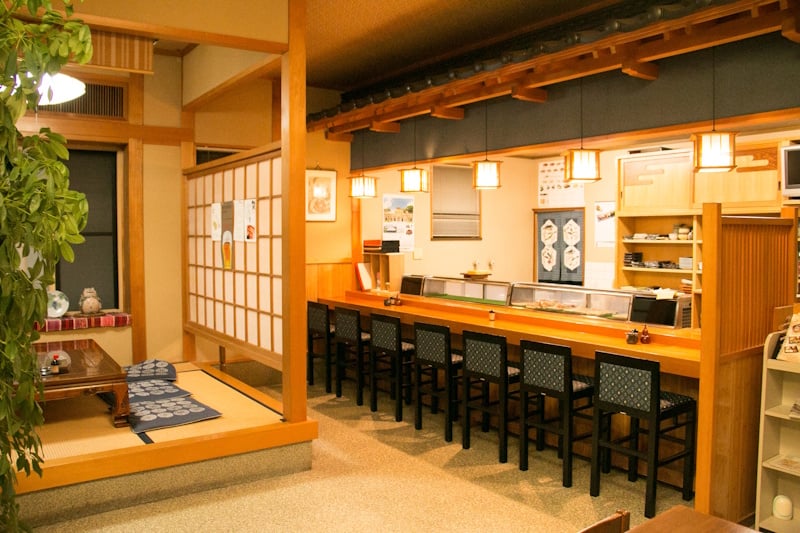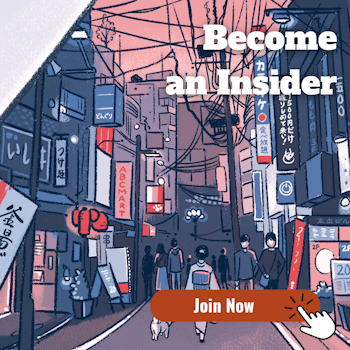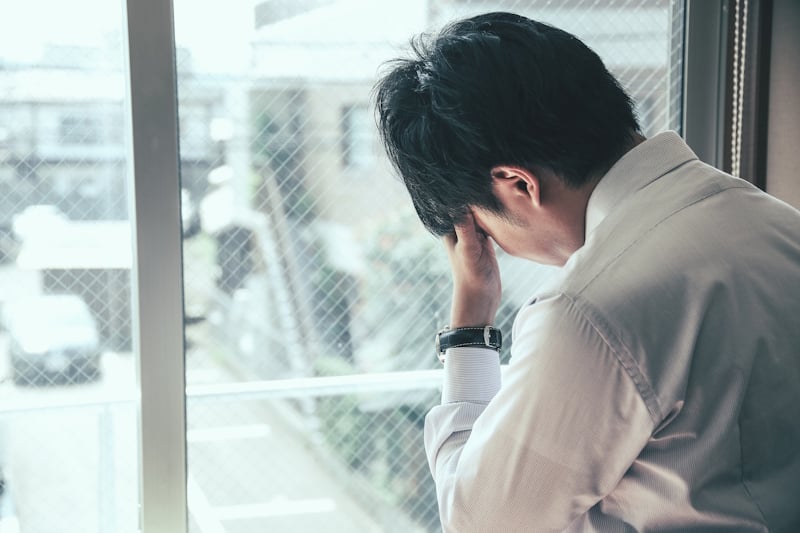Tourism means booming business for many restaurants in Japan. But a combination of crowds and a chronic labor shortage spells trouble. A new government report highlights just how close many restaurant managers are to crossing the so-called “death by overwork” line.
Japan’s restaurant managers remain caught in a long-hours culture
 Picture: ray / PIXTA(ピクスタ)
Picture: ray / PIXTA(ピクスタ)
On October 28th, 2025, the government approved the 2025 edition of the “White Paper on Measures to Prevent Karōshi (death from overwork) and Related Deaths,” which details the realities of overwork in Japan’s workplaces. This edition focuses on work styles in the restaurant industry and reveals that about 30% of store managers work 60 hours or more per week — the threshold considered at risk for karōshi.
A Ministry of Health, Labour and Welfare (MHLW) official pointed out, “Even amid labor shortages, long working hours for people in responsible positions have not decreased.”
Japan introduced labor reform laws in April 2019 that set overtime limits of 45 hours per month and 360 hours per year. Across all industries, the share of workers putting in more than 60 hours per week has since fallen to 4.6%. However, a MHLW official said, “In the restaurant industry, where labor shortages are severe, long working hours among store managers remain unresolved.”
Because the restaurant industry is a priority sector under Japan’s karōshi prevention policy, the latest white paper highlights a detailed survey conducted by the ministry at the end of 2024. The survey collected responses from 1,200 people in the restaurant industry, including 100 area managers and supervisors, 200 store managers, 400 customer service staff, 400 kitchen staff, and 100 others. Of the respondents, 696 were men and 504 were women.
Overall, 14.9% said they worked 60 hours or more per week on average during the past month.
By occupation, 29% of store managers reported working at least 60 hours weekly — the highest among all roles — followed by 24% of area managers and supervisors, and 13.3% of kitchen staff. The results show a clear trend of longer working hours among those in managerial positions.
“Customer harassment” adds to stress in Japan’s restaurant industry
Furthermore, the survey asked respondents about their experiences with “customer harassment,” including unreasonable demands or verbal abuse from customers. Overall, 18.8% reported experiencing it.
Area managers and supervisors had the highest rate at 30.0%, followed by store staff who deal with customers at 21.3%, and store managers at 19.5%. Among the types of harassment, continuous, persistent complaints were most common at 53.8%. Intimidating behavior, such as shouting aggressively, followed at 48.4%, and psychological abuse, including threats or insults, came next at 36.0%.
Government to review overtime rules amid surge in mental health-related claims
The white paper also summarizes data on workers’ compensation claims and approvals. Cases related to mental illness have continued to rise, reaching 1,055 in fiscal 2024 — more than triple the 308 cases recorded in 2010.
Excluding suicide cases, women filed 1,930 claims for workers’ compensation, surpassing men at 1,648. By industry, the medical and welfare sector had the highest number with 969 cases.
Planning a trip to Japan? Get an authentic, interpreted experience from Unseen Japan Tours and see a side of the country others miss!

“Noah [at Unseen Japan] put together an itinerary that didn’t lock us in and we could travel at our own pace. In Tokyo, he guided us personally on a walking tour. Overall, he made our Japan trip an experience not to forget.” – Kate and Simon S., Australia

See a side of Tokyo that other tourists can’t. Book a tour with Unseen Japan Tours – we’ll tailor your trip to your interests and guide you through experiences usually closed off to non-Japanese speakers.


Want more news and views from Japan? Donate $5/month ($60 one-time donation) to the Unseen Japan Journalism Fund to join Unseen Japan Insider. You’ll get our Insider newsletter with more news and deep dives, a chance to get your burning Japan questions answered, and a voice in our future editorial direction.
The most common cause of mental disorders was “interpersonal relationships,” accounting for 1,519 cases. More than 60% of these involved trouble with a superior. A MHLW official said, “We believe workplace environments are a factor, but we have not identified the full causes. Continued efforts on mental health and harassment prevention are needed.”
While the number of suicides and attempted suicides has remained steady at around 60 to 80 cases a year, compensation cases linked to long-term leave due to overwork or workplace harassment have increased.
In response, Prime Minister Takaichi has instructed MHLW Minister Ueno to review the current overtime regulations. At a press conference following the Cabinet meeting on the 28th, Ueno said, “We need to consider that the current cap aligns with the karōshi recognition threshold.” He added that the government will study the issue while taking into account actual work conditions and labor needs.
The debate over long hours resurges, thanks to PM Takaichi
 Picture: taa / PIXTA(ピクスタ)
Picture: taa / PIXTA(ピクスタ)
High-profile cases of karōshi, such as the death of Dentsu employee Takahashi Matsuri, have put a decades-long spotlight on the problem of overwork in Japan. The country responded with its so-called “work reform” under Abe Shinzō.
Japan’s government initially sought to cap the amount of overtime employees could work in a month at 80 hours. However, after an outcry from businesses, it raised that ceiling to 100 hours.
There are signs, however, that this progress could be undone. Recently, new Prime Minister Takaichi Sanae said she wants her government to revisit limits on work hours. Her Liberal Democratic Party (LDP) and other political parties in Japan, such as the right-wing Sanseitō and the Kōmeitō, have endorsed, not “work reform” (働き方改革; hatarakikata kaikaku), but “will to work reform” (働きたい改革; hatarakitai kaikaku).
The emphasis on the “will to work” implies that people who want to work longer hours – and collect the ensuing overtime – should be allowed to. However, Komuro Yoshie, the head of the Work Life Balance Inc., criticized the push.
“A limited number of people can put in longer hours. You can’t fill the labor shortage by relaxing the monthly cap. Rather, we need strategies that make it easier for a large number of people to enter the workforce.”
Such rules wouldn’t directly impact restaurants that are one-person operations. Around 55.2% of restaurants in Japan are either run by a single person or employ only a handful of people. However, it could impact their ability to hire if the government shifts its focus away from increasing the labor pool (e.g., by relaxing immigration) and instead pushes Japanese citizens to do more with less.
If you or someone you love is in crisis, please reach out for help. Those in Japan you can call the following numbers:
0570-064-556 for kokoro-no-kenkou-soudan (こころの健康相談) operated by prefectorial and city organizations
Planning a trip to Japan? Get an authentic, interpreted experience from Unseen Japan Tours and see a side of the country others miss!

“Noah [at Unseen Japan] put together an itinerary that didn’t lock us in and we could travel at our own pace. In Tokyo, he guided us personally on a walking tour. Overall, he made our Japan trip an experience not to forget.” – Kate and Simon S., Australia

See a side of Tokyo that other tourists can’t. Book a tour with Unseen Japan Tours – we’ll tailor your trip to your interests and guide you through experiences usually closed off to non-Japanese speakers.


Want more news and views from Japan? Donate $5/month ($60 one-time donation) to the Unseen Japan Journalism Fund to join Unseen Japan Insider. You’ll get our Insider newsletter with more news and deep dives, a chance to get your burning Japan questions answered, and a voice in our future editorial direction.
0570-783-556 for inochi-no-denwa (いのちの電話) operated by Federation of Inochi No Denwa.
For English language help in Japan, reach out to TELL.
If you are in the US, call 911 for emergencies and 988 for the suicide hotline.
Sources
飲食店長3割、週60時間以上勤務 月平均で過労死水準 厚労省調査 朝日新聞
外食産業の店長、3割が「週60時間以上」の過労死ライン…過労死白書 読売新聞
労働時間の規制緩和検討、高市首相の指示めぐり割れる労使の受け止め. Asahi Shimbun
自民の「働きたい改革」に経済界の影?労働時間規制も参院選の論点に. Asahi Shimbun
飲食店の新規出店とワンオペ運営の実態. SOEL


AloJapan.com